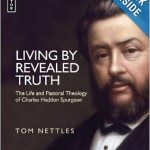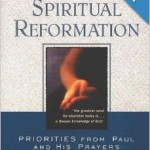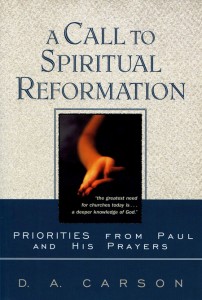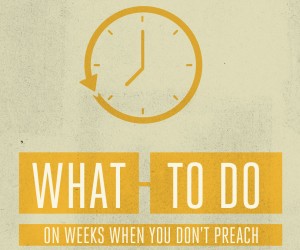Nothing is more precious to a Christian than God’s word. And nothing is more precious to a church than God’s word.
God’s word is involved in everything He does: from His decrees to His creation to His providence. His word performs all His acts. If we go even further, it is impossible to separate God and His word. Where God is, His word is; where His word is, God is.1 In his recent Systematic Theology: An Introduction to Christian Belief the good perspectivalist, John Frame, writes:
So the word of God is a great treasure. We should rejoice that our God is not dumb, like the gods of the nations, but has shared with us his laws, his wisdom, and his love. And God is always with and in his word. When we read the Word, we encounter him; when we encounter him, we hear his word. (523)
So then, a church that treasures God’s word will be a church that encounters God. How then can a church treasure God’s word and thus encounter God? One simple answer would be to construct a weekly liturgy clearly centered on God’s word. While the order and timing of every liturgy need not be the same, I would nevertheless advocate for a church’s liturgy to normally consist of the following six ordinary elements.
6 ORDINARY ELEMENTS FOR TREASURING GOD’S WORD
1. Preach the word (2 Tim. 4:2). This is where it all begins. Expositional preaching is the fountainhead for God’s word permeating the church, and is the spark for encountering God. I think it would be hard to find a church who treasures God’s word that doesn’t consistently feast upon expository preaching. The uniqueness of expository preaching is it strives to make plain what a passage of Scripture says. Because God’s word alone has the authority and power to change a heart, and is the ordinary way in which God speaks to His people, churches that treasure God’s word must have be built on expository preaching.
2. Read the word (1 Tim. 4:13; Rev. 1:3). In 2 Timothy 3 Paul talks about “the sacred writings, which are able to make you wise for salvation through faith in Christ Jesus.” What power there is in God’s word! So every pastor must obey the command 1 Timothy 4:13 to devote himself “to the public reading of God’s word.” This element seems to have fallen on hard times in many evangelical churches, but I pray the renaissance of expositional preaching will soon result in a renaissance of the public reading of God’s word. There are many different ways to do this: systematically reading through a testament, systematically reading through the Psalms, or reading a portion of Scripture that corresponds to sermon text. Reading God’s word can be done congregationally or representationally (an individual reading a passage for the church).
3. Sing the word (Eph. 5:19; Col. 3:16). Saturate your church’s liturgy with the word sung. Select songs that major not simply in Scriptural truth, but in Scriptural lyrics. Singing provides a powerful opportunity to treasure God’s word. One way our church tries to amplify the word-centeredness of our singing is to have every song illuminated by Scripture during the song. Many songs have an instrumental section between a chorus and verse or chorus and bridge, so why not put Scripture on the screen while the instruments are playing? Instead of blithely watching the band perform, the congregation has the opportunity to encounter God’s word with truth appropriate to the song.
4. Pray the word (Eph. 6:18; Col. 6:2; Heb. 13:15). Prayer seems to be – to me at least – a transitional element in many liturgies. It is the evangelical oil that provides a seamless transition from song to sermon and then from sermon to song. But prayer must have more than transitional prominence in the church’s gathering. A diversity of prayers can be offered throughout the service: prayers of praise, confession, thanksgiving, and intercession. If your church hasn’t ever had extended prayer in a service I would counsel you to start slowly. Yet start nonetheless by praying for biblical priorities with biblical language.
5. See the word (Mat. 28:18-20; Luke 22:19). Through the sacraments of baptism and the Lord’s Supper we “see” the word. These ordinances are visible representations of God’s word and God’s gospel. We ought to all be consistently praying the Lord uses our church in such a way that the baptismal waters are stirred with great frequency. Although we can do nothing to guarantee weekly baptism, we can see the word each week through communion. If you need specific encouragement on this point see my post “3 Reasons for Weekly Communion.”
6. Support the word (1 Cor. 16:2; Phil. 4:15-16). Resist the contemporary practice of privatizing the offering by simply having a tithe box at the back of your meeting space. Make the offering a dedicated, ordinary element in your church’s liturgy. Through giving we support the ministry of the word, worship God, and obey His word. Depending on how your liturgy is structured, an offering can be preceded or followed by a prayer of thanksgiving or Bible reading.
A church that treasures God’s word will be a church that regularly encounters God. A simply way to do this is to saturate everything you do in gathered worship with God’s word. So build your church’s liturgy on the six ordinary elements of preaching, reading, singing, praying, seeing, and supporting the word.
- These sentences are adapted from Frame, Systematic Theology, 521. ↩











